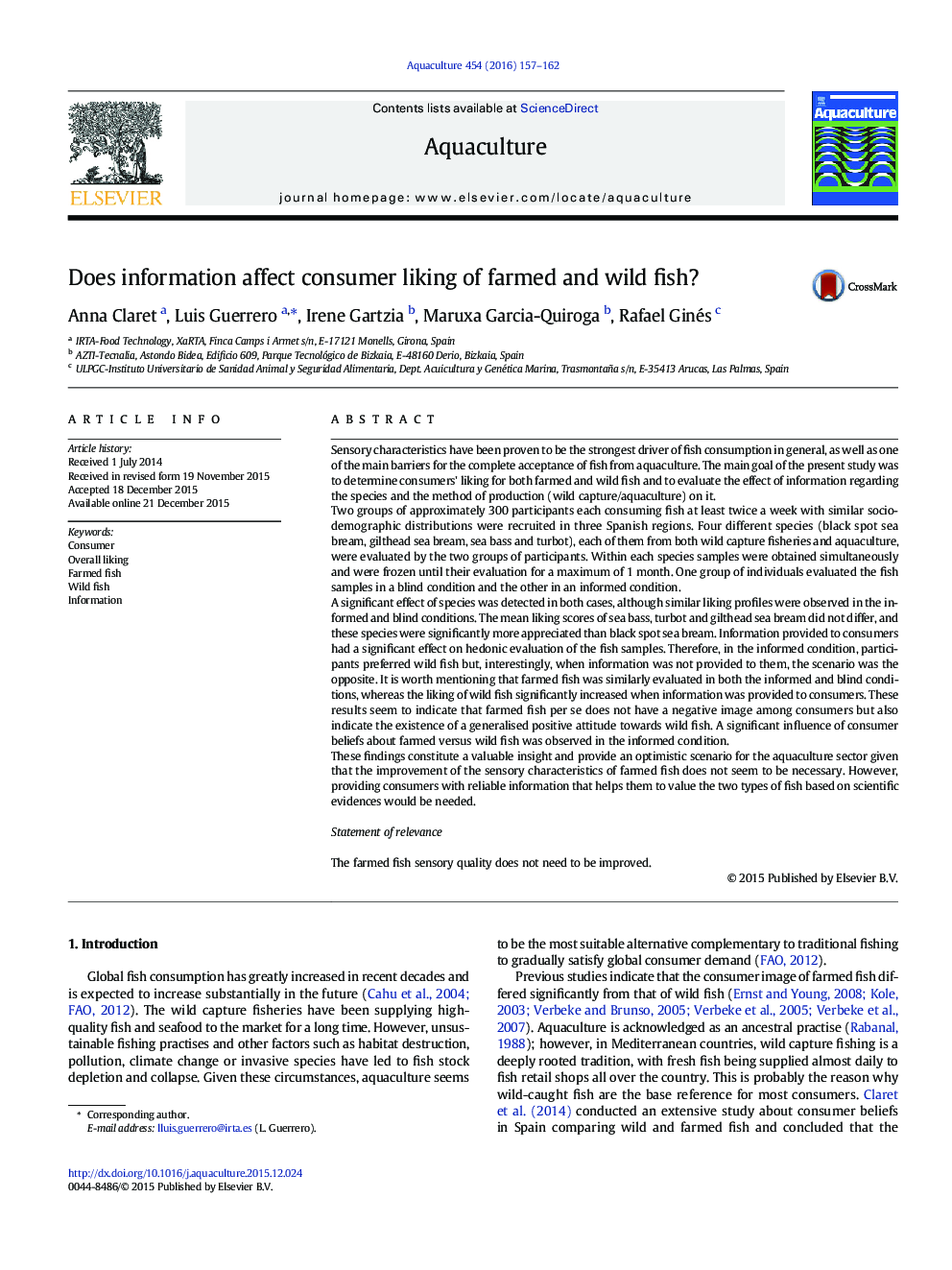| کد مقاله | کد نشریه | سال انتشار | مقاله انگلیسی | نسخه تمام متن |
|---|---|---|---|---|
| 2421514 | 1552833 | 2016 | 6 صفحه PDF | دانلود رایگان |
• Information had a significant effect on consumers' liking.
• Wild fish was preferred in the informed condition.
• Farmed fish was preferred when no information was provided.
• The sensory improvement of farmed fish does not seem to be necessary.
• The image of farmed fish among consumers should be enhanced.
Sensory characteristics have been proven to be the strongest driver of fish consumption in general, as well as one of the main barriers for the complete acceptance of fish from aquaculture. The main goal of the present study was to determine consumers' liking for both farmed and wild fish and to evaluate the effect of information regarding the species and the method of production (wild capture/aquaculture) on it.Two groups of approximately 300 participants each consuming fish at least twice a week with similar socio-demographic distributions were recruited in three Spanish regions. Four different species (black spot sea bream, gilthead sea bream, sea bass and turbot), each of them from both wild capture fisheries and aquaculture, were evaluated by the two groups of participants. Within each species samples were obtained simultaneously and were frozen until their evaluation for a maximum of 1 month. One group of individuals evaluated the fish samples in a blind condition and the other in an informed condition.A significant effect of species was detected in both cases, although similar liking profiles were observed in the informed and blind conditions. The mean liking scores of sea bass, turbot and gilthead sea bream did not differ, and these species were significantly more appreciated than black spot sea bream. Information provided to consumers had a significant effect on hedonic evaluation of the fish samples. Therefore, in the informed condition, participants preferred wild fish but, interestingly, when information was not provided to them, the scenario was the opposite. It is worth mentioning that farmed fish was similarly evaluated in both the informed and blind conditions, whereas the liking of wild fish significantly increased when information was provided to consumers. These results seem to indicate that farmed fish per se does not have a negative image among consumers but also indicate the existence of a generalised positive attitude towards wild fish. A significant influence of consumer beliefs about farmed versus wild fish was observed in the informed condition.These findings constitute a valuable insight and provide an optimistic scenario for the aquaculture sector given that the improvement of the sensory characteristics of farmed fish does not seem to be necessary. However, providing consumers with reliable information that helps them to value the two types of fish based on scientific evidences would be needed.Statement of relevanceThe farmed fish sensory quality does not need to be improved.
Journal: Aquaculture - Volume 454, 1 March 2016, Pages 157–162
